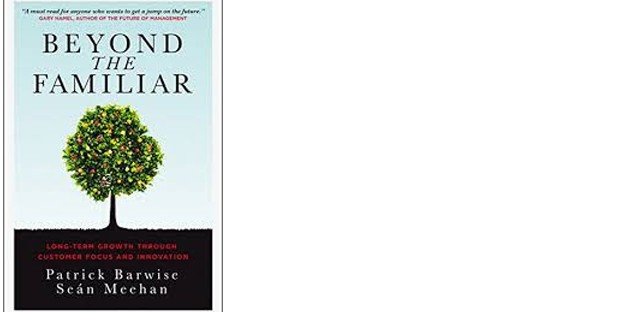Latest posts
A masterclass in creating value
What’s going on at parkrun?
Virtue-signalling all the way to the bank
Bud Light: brand purpose or virtue-signalling?
The Coddling of the American Mind, by Greg Lukianoff and Jonathan Haidt
Belonging, by Owen Eastwood
Such a simple thing
The Long Win, and The Scout Mindset
The Cult of We by Eliot Brown and Maureen Farrell
Coffee and covid modelling
By theme
Marketing strategy
Insight & metrics
Innovation & inspiration
Brand & positioning
Marketing communications
Business purpose
Leadership
By industry sector
Financial services
Retail
FMCG
Technology & start-ups
Consumer services
Business to business
Other sectors
By type
Books
Comment
Quotes
Thought leadership
It’s easy to take a swipe at banks, and tempting to think it was all about the good old days, when the bank manager knew his (mostly, his) customers personally. Dave Fishwick of Burnley Savings and Loans seems to think so. Frustrated at seeing loan applications from apparently credit-worthy local businesses refused by faceless administrators, or even computers, located far away from honest Burnley – probably in the wicked South – he set up his own bank, Read More
“A problem well stated is a problem half solved”
John Dewey, American philosopher Read More
There’s a whole industry built on having sporting achievers speak to business people, and the received wisdom is that we can learn from them. We can – but not what you might think. It’s not so much about the value of commitment, belief, teamwork – all that inspiring stuff – as it is about seeing a fulfilled person, and wanting to share that feeling. Here’s my blog post from Brand Republic.
Sir Matthew Pinsent is a very big man, Read More
“The business schools reward difficult, complex behaviour more than simple behaviour, but simple behaviour is more effective.”
Warren Buffett Read More
Banks, eh? Easy to knock them, but what can we learn from their travails? Well, they illustrate perfectly how a. incentives drive behaviour, and b. delighting shareholders is unlikely to be a winning strategy in the long term. John Kay’s book Obliquity explores the principle that complex goals are best achieved indirectly, with examples of companies which achieved sustainable profitability by focusing not on their profit goals but on what their customers needed from them. Read More
Every business needs an effective customer dashboard, which should measure how the business is delivering on its promise to customers (or consumers), and not how well the marketing department is spending its marketing budget (see Dashboard schmashboard). Every function is responsible for managing and spending its budget wisely. Marketing communications budgets may be subject to board scrutiny from time to time, just like other large budgets, but that’s nothing to do with the customer experience. Read More
Customer dashboards are popular now – everyone’s talking about them, and feeling great about using them to “bring the customer into the board room”. Your average customer dashboard is usually a table of measures, sometimes as many as twenty or thirty, that come directly or indirectly from your customers or consumers. These can be simple things like market share or retention measured by the business or third parties, along with data from custom research like customer satisfaction or net promoter scores, Read More
Fooled by randomness, by Nassim Nicholas Taleb
It’s a cliché to say a book changes how you think about things, or how you see the world, but this one does. Taleb, a Lebanese trader working in the New York financial market, is original, iconoclastic and entertaining. It made me question what I read and hear in the media, and how people report events and achievements. The central idea is that we look for causality and frequently infer it where it does not exist. Read More
How brands grow: what marketers don’t know, by Byron Sharp
Based on analysis of twenty years of rigorous purchasing data from many categories and markets, this book debunks some of the myths about how marketing builds business success. An Aussie academic who worked with the great Andrew Ehrenberg of London South Bank University, Sharp shows how a lot of marketers focus on the wrong things, and tells you what you should focus on. Read More
Beyond the Familiar, by Patrick Barwise and Seán Meehan
These two take an enterprise-wide approach to creating organic growth, with a simple, clear and actionable model. They agree with Sharp that the only differentiation really worth pursuing is to be the business that delivers on the category basics better than competitors. Their previous book, Simply Better, laid out that argument in full. This time they’re showing how to put it into practice. They place a very high value on customer feedback, Read More
Latest posts
A masterclass in creating value
What’s going on at parkrun?
Virtue-signalling all the way to the bank
Bud Light: brand purpose or virtue-signalling?
The Coddling of the American Mind, by Greg Lukianoff and Jonathan Haidt
Belonging, by Owen Eastwood
Such a simple thing
The Long Win, and The Scout Mindset
The Cult of We by Eliot Brown and Maureen Farrell
Coffee and covid modelling
By theme
Marketing strategy
Insight & metrics
Innovation & inspiration
Brand & positioning
Marketing communications
Business purpose
Leadership
By industry sector
Financial services
Retail
FMCG
Technology & start-ups
Consumer services
Business to business
Other sectors
By type
Books
Comment
Quotes
Thought leadership







